Diarrhea in dogs: causes, symptoms and treatment options
Diarrhea in dogs is a common problem that can be distressing for both the animals and their owners. It can range from a mild and quickly passing illness to a sign of serious health problems. In this article, we will examine the different aspects of diarrhea in dogs to provide you with the necessary information on how to act correctly if your dog becomes ill.
What is diarrhea in dogs?
Diarrhea in dogs is characterized by frequent, usually watery or soft stools that differ from normal feces in consistency and color. It can occur suddenly or be a persistent problem and is often a sign of a disturbance in the dog's digestive system .
The importance of early detection and treatment
Untreated diarrhea can lead to serious complications such as dehydration and nutrient deficiencies . Therefore, it is important to react early and seek veterinary advice if necessary. A prompt diagnosis and appropriate treatment can accelerate the healing process and minimize the risk of complications.
What are the causes of diarrhea in dogs?
1. Dietary triggers: A sudden change in diet or the consumption of unsuitable foods can overwhelm a dog's digestive system.
2. Infections and parasites: Bacterial infections, viruses or parasites such as Giardia can put a heavy strain on the intestines and cause diarrhea.
3. Food intolerances and allergies: Some dogs are sensitive to certain ingredients in their food, which can lead to chronic or acute diarrhea.
4. Stress and psychological factors: Stressful situations, such as moving house or new family members, can trigger digestive problems in dogs.
5. Drug side effects: Some drugs used to treat other conditions can cause diarrhea as a side effect.
6. Underlying diseases: Chronic diseases such as inflammatory bowel diseases or liver and kidney problems can have diarrhea as a symptom.
Diarrhea in dogs - symptoms to watch out for
Besides the obvious diarrhea, other symptoms may occur that point to a more serious cause. So observe carefully and take a good look:
Blood in the stool: An alarming sign that requires immediate veterinary examination.
Vomiting: Accompanying vomiting can be a sign of a more serious illness.
Lethargy: A dog that appears weak or apathetic urgently needs medical attention.
Loss of appetite: The loss of interest in food can indicate an underlying medical condition.
When should we visit the vet?
It is advisable to consult a veterinarian immediately if diarrhea lasts longer than 24 hours, if there is blood in the stool, or if the dog shows additional symptoms such as vomiting, fever, or severe weakness. You should also not hesitate to seek professional help for puppies, older dogs, or animals with chronic illnesses.
Preventing diarrhea in dogs - What can I do to prevent diarrhea from occurring in the first place?
Preventing diarrhea is of course the best thing to do.
1. Stable feeding: Avoid sudden changes in food and introduce new foods gradually.
2. Cleanliness and hygiene: Keep food and water bowls clean and prevent your dog from eating spoiled food or garbage. I know it's difficult with the little ones and those who don't yet trust us that they'll definitely get their food again today.

3. Stress reduction : Provide your dog with a stable environment and minimize stressful situations. This isn't always possible, especially when moving house, when the family grows, etc.
4. Regular veterinary visits: Regular health checks allow potential problems to be detected and treated early. This can be done repeatedly.
5. Supplementation with clinoptilolite zeolite: Zeolite absorbs pollutants in the intestine that could lead to diarrhea.
Are there any home remedies for diarrhea in dogs?
1. Fasting
Short-term fasting (12-24 hours): Allow your dog to fast for 12 to 24 hours to give their digestive system a break and soothe irritation. However, ensure your dog continues to have access to fresh water to prevent dehydration.
2. Bland diet
Cooked chicken and rice: After fasting, you can give your dog a small portion of easily digestible cooked, unseasoned chicken (without skin and bones) and white rice. This combination is easily digestible and can help alleviate diarrhea. I think every dog owner has cooked this for their pet at some point.
Boiled potatoes or sweet potatoes: These can also serve as an easily digestible source of carbohydrates.
3. Pumpkin
Pureed pumpkin (without spices): Pumpkin contains fiber, which can help regulate bowel movements by absorbing excess water in the intestines. Add one to two teaspoons of pumpkin puree to your dog's food.
4. Probiotics
Natural yogurt: A small amount of natural yogurt (without sugar, of course, right?) can help support gut flora. Yogurt contains probiotics that can restore the balance of beneficial bacteria in the gut.
Probiotic supplements: There are special probiotic supplements for dogs that can be helpful in cases of diarrhea. These can be added to their food.
5. Psyllium husks
Psyllium husks: These are a good source of soluble fiber, which can help firm up stools. You can mix a small amount (depending on the size of your dog) into their food. Start with a pinch up to half a teaspoon and increase the amount as needed. You probably already have psyllium husks with your breakfast cereal. We keep them way in the back, in the left corner.
6. Cottage cheese
Low-fat cottage cheese: without chives or herbs. This can be a good addition to a bland diet. It is easily digestible and can help soothe the stomach and normalize bowel movements. Our dog loves it.
7. Chamomile tea
Cooled chamomile tea: Chamomile tea has soothing properties and can help relieve inflammation in the gastrointestinal tract. You can give your dog small amounts of cooled tea either directly or mixed into his food. We have to mix it into his food – he would never drink it on his own.
8. Honey
A small spoonful of honey: Honey can soothe the stomach and has antimicrobial properties. It can be particularly helpful if the diarrhea is caused by stress or a mild stomach upset.
9. Saline solution
Homemade electrolyte solution: Mix one liter of water with one teaspoon of salt and one teaspoon of sugar to make a simple electrolyte solution. This can help compensate for fluid and electrolyte loss due to diarrhea. Give your dog the solution to drink in small amounts.
10. Applesauce
Unsweetened applesauce: Applesauce contains pectin, a type of soluble fiber that can regulate bowel movements. A small amount of unsweetened applesauce can be a useful addition to a bland diet.

11. Zeolite for diarrhea
Zeolite is a naturally occurring mineral known for its adsorbing and detoxifying properties. In veterinary medicine, particularly in dogs, zeolite can be used as a supportive treatment for diarrhea.
Here is an overview of how zeolite can help with diarrhea:
1. Adsorption of toxins and pollutants
Zeolite has a high adsorption capacity for toxins, heavy metals, and other harmful substances in the gastrointestinal tract. In dogs with diarrhea, zeolite can help bind these harmful substances and remove them from the body. This reduces the burden on the digestive system and can help alleviate diarrhea.
2. Regulation of pH value in the intestine
Zeolite has the ability to regulate the pH level in the digestive tract. A balanced pH level is important for a healthy gut flora and effective digestion. By stabilizing the pH level, zeolite can help support the gut flora and reduce the risk of diarrhea.
3. Strengthening the intestinal barrier
Due to its detoxifying properties, zeolite can strengthen the intestinal barrier. This is particularly beneficial for dogs with inflammatory bowel diseases or irritable bowel syndrome, who are more prone to diarrhea. A healthy gut is better able to ward off harmful bacteria and toxins, which can lead to a reduction in diarrhea.
4. Promoting water retention
Zeolite can also help bind excess water in the intestines. This can improve stool consistency and reduce the symptoms of diarrhea. By absorbing moisture, zeolite can firm up stools and thus reduce the frequency and severity of diarrhea.
5. Supporting the healing process in cases of intestinal irritation
Diarrhea can irritate and inflame the intestinal lining. Zeolite has anti-inflammatory properties and can help soothe the irritated intestinal lining and promote healing. This allows the intestines to regenerate more quickly and the diarrhea to subside faster.
Zeolite as an important natural aid for diarrhea in dogs
Zeolite can be an effective and natural aid in the treatment of diarrhea in dogs. It works by adsorbing toxins , regulating pH levels , strengthening the intestinal barrier, binding water, and promoting the healing of intestinal irritations.
Important instructions:

Ensure adequate hydration: It's crucial that your dog drinks enough to prevent dehydration. And encourage and entice them to drink. In our case, that's what it takes. Our dog drinks very sparingly. He gets that from me; according to some experts, I also drink far too little.
Adjust the amounts: Start with small amounts of the above-mentioned home remedies and observe your dog's reaction. Increase the amount slowly if necessary.
Slow reintroduction of normal food: If the diarrhea improves, you should slowly reintroduce your dog's usual food to avoid relapses.
Recipes for diarrhea in dogs
Here are two simple recipes that combine pumpkin puree and zeolite or yogurt and zeolite. These recipes are easily digestible and can help relieve your dog's diarrhea.
Recipe 1: Pumpkin puree with zeolite
Ingredients:
1/2 cup pure pumpkin puree (without spices)
1 teaspoon of zeolite (in powder form)
Optional: A little cooked, unseasoned rice

Preparation:
1. Preparation of the pumpkin puree:
Bake a pumpkin in the oven until it is soft, and then puree the flesh.
2. Mixing the zeolite:
Place the pumpkin puree in a bowl and add 1 teaspoon of zeolite.
Stir the mixture well until the zeolite is evenly distributed in the pumpkin puree.
3. Serve:
Serve your dog a small portion of this mixture.
1-2 tablespoons for small dogs, 2-3 tablespoons for medium dogs, 1/4 cup for large dogs.
If desired, you can add some cooked rice to make the meal more filling.
Here you can watch a video on YouTube that we recorded when our dog Ezra had diarrhea. Here you can see all the steps.
Recipe 2: Yogurt with Zeolite
Ingredients:
2 tablespoons of unsweetened natural yogurt (low-fat)
1 teaspoon of zeolite (in powder form)
Optional: 1 teaspoon of pureed apple, or stewed apple (unsweetened, of course), or a little cottage cheese
Preparation:
1. Preparing the yogurt:
Use unsweetened natural yogurt (just so I've said it again), as sweetened yogurts contain sugar which could worsen diarrhea and has no place in a dog's diet.
2. Mixing the zeolite:
Place the yogurt in a small bowl and add 1 teaspoon of zeolite.
Stir the mixture well until the zeolite is completely incorporated into the yogurt.
3. Optional ingredients:
For added nutrients and flavor, you can add 1 teaspoon of unsweetened applesauce or some low-fat cottage cheese and mix well.
4. Serve:
Give your dog a small amount of this mixture.
1-2 tablespoons for small dogs, 2-3 tablespoons for medium dogs, 1/4 cup for large dogs.
This mixture can be given once or twice a day, depending on the size and needs of your dog.
These recipes are intended to help soothe your dog's digestive tract and support the healing process.
Of course! Here is a clear table summarizing the most important content of the Steinkraft article "Diarrhea in Dogs: Causes, Symptoms, and Home Remedies." It provides a quick overview of the causes, symptoms, treatment options, and home remedies for diarrhea in dogs:
Here's a summary of the most important points in a table: Diarrhea in dogs
| category | Details |
|---|---|
| Common causes |
|
| Typical symptoms |
|
| Initial measures |
|
| Proven home remedies |
|
| When to go to the vet? |
|
| Preventive measures |
|
👉 Here you'll find the product of the month and a good overview of all STEINKRAFT product lines.
👉 Here you can find all STEINKRAFT products at a glance - directly in the shop














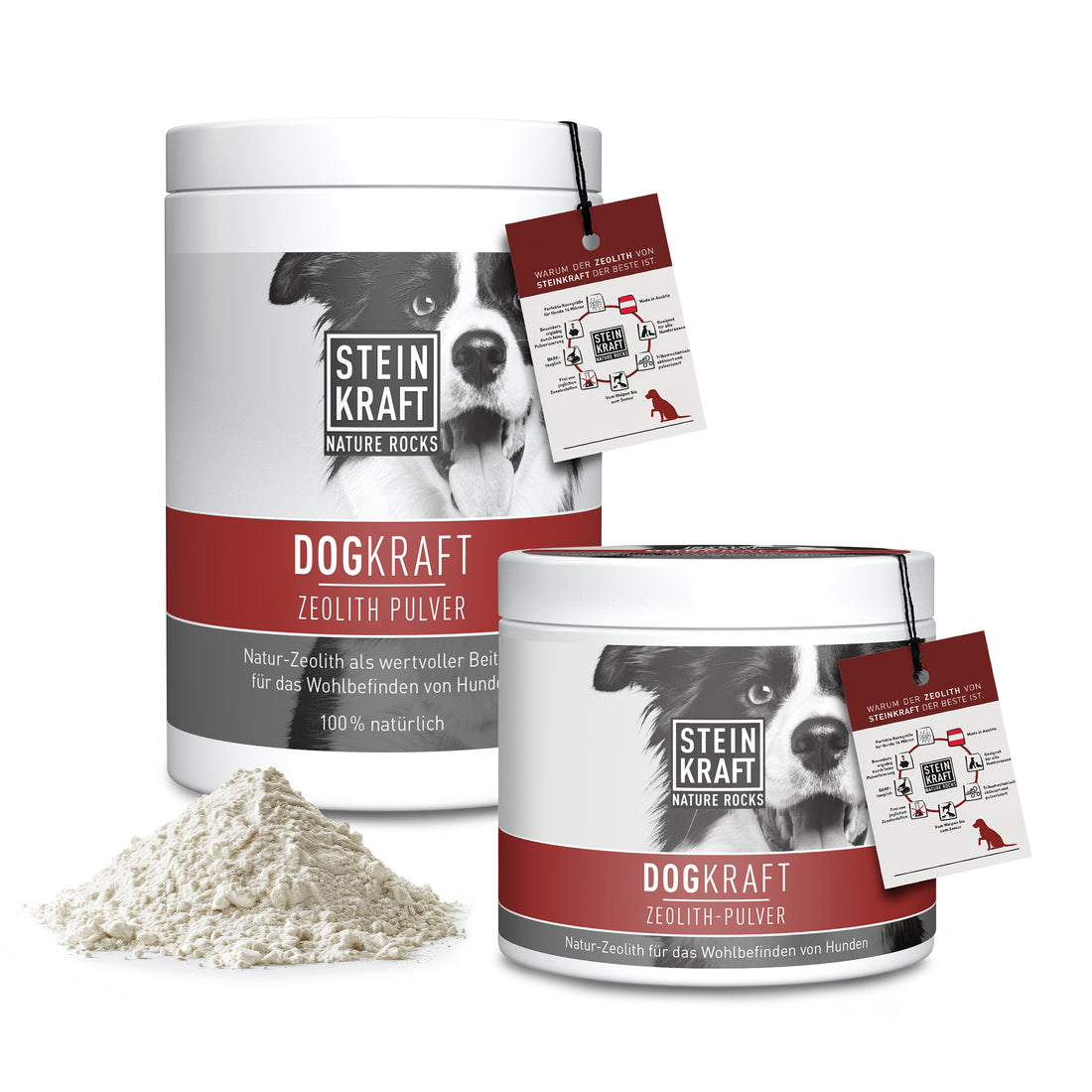
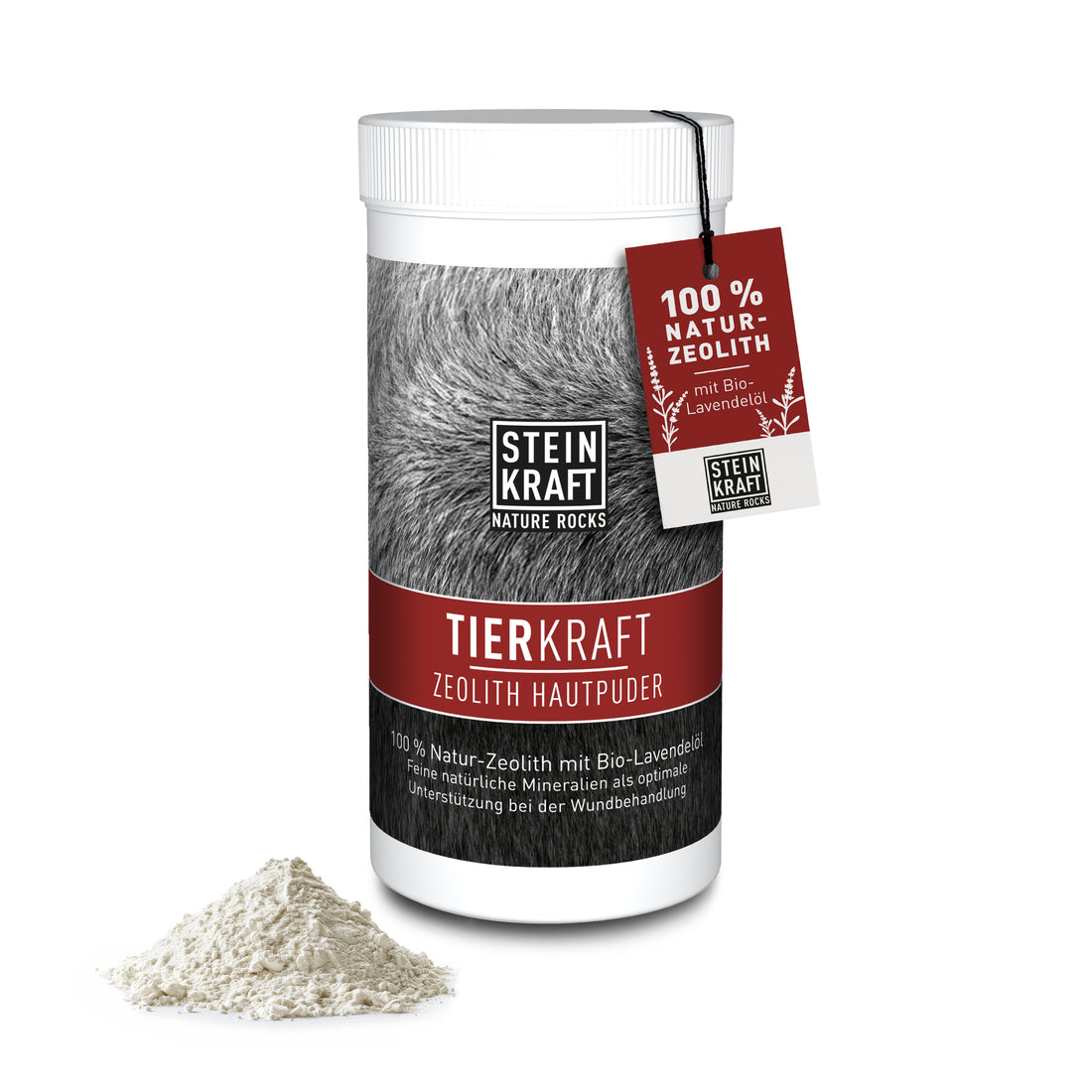
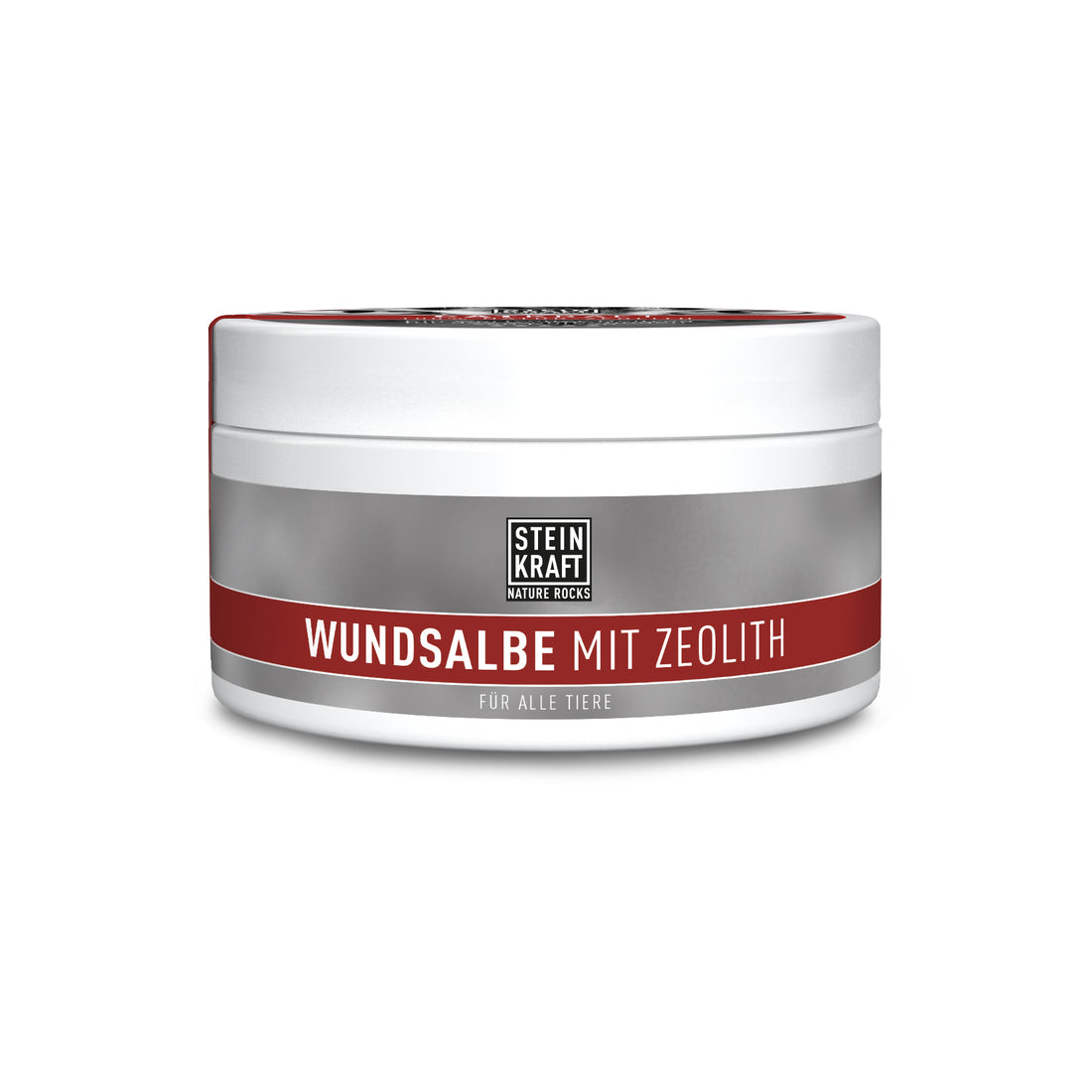


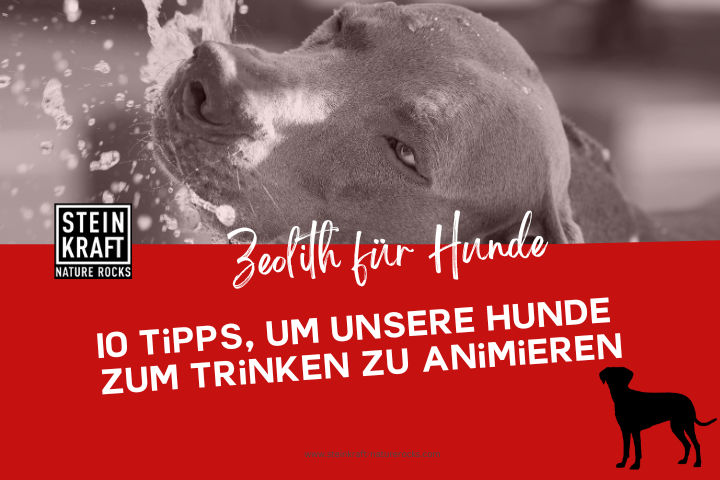

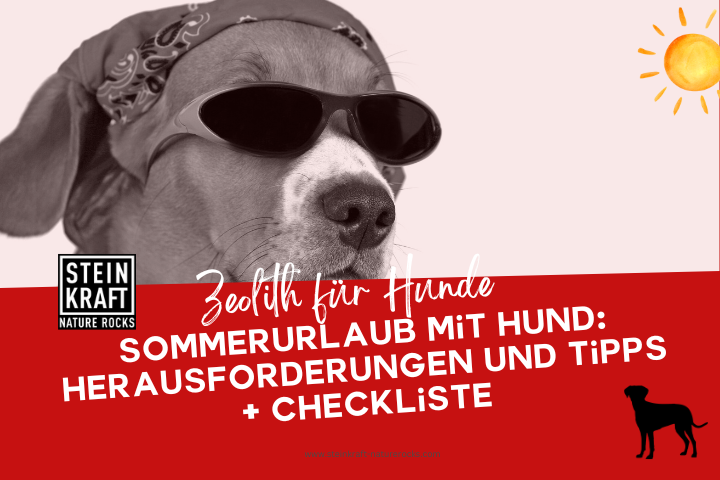




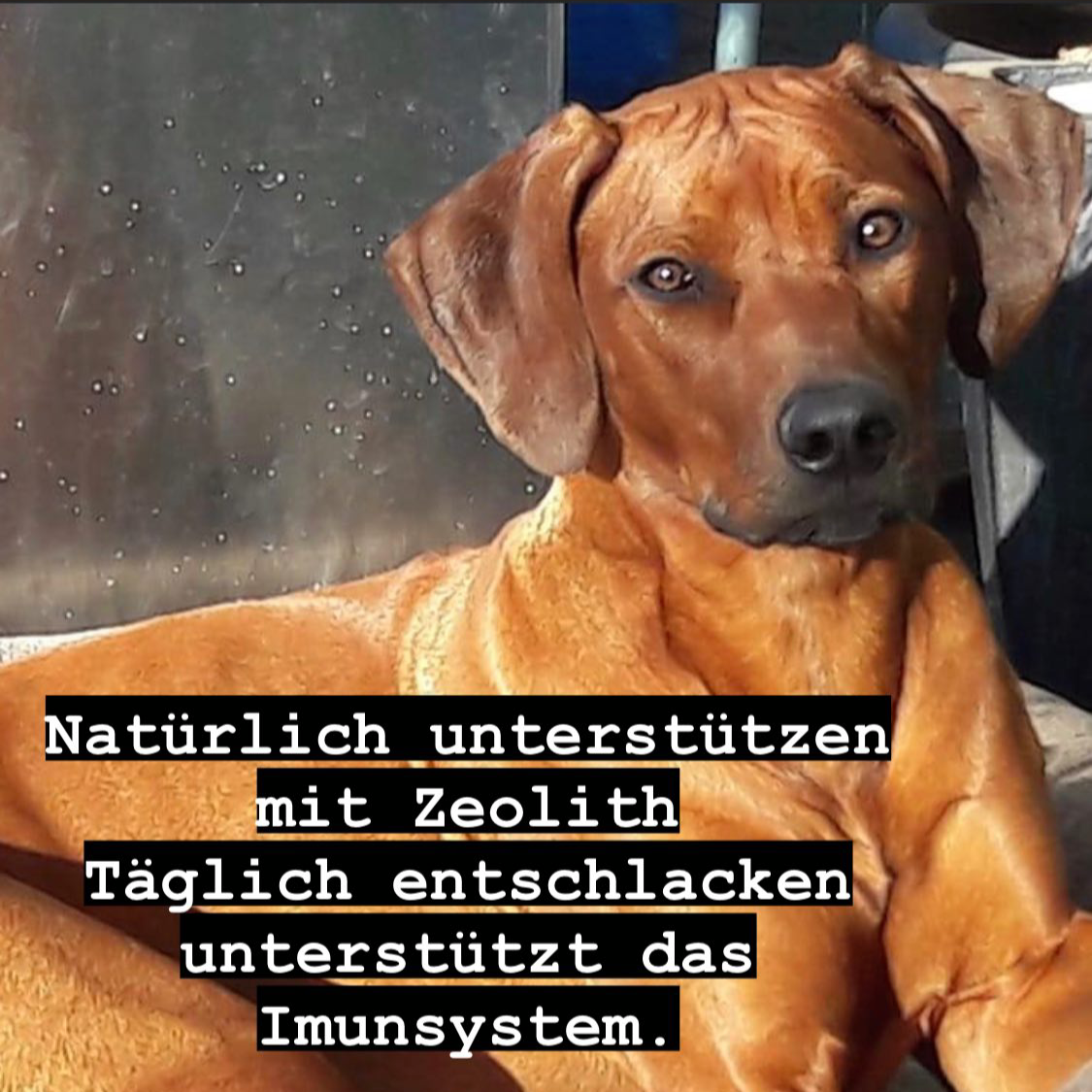


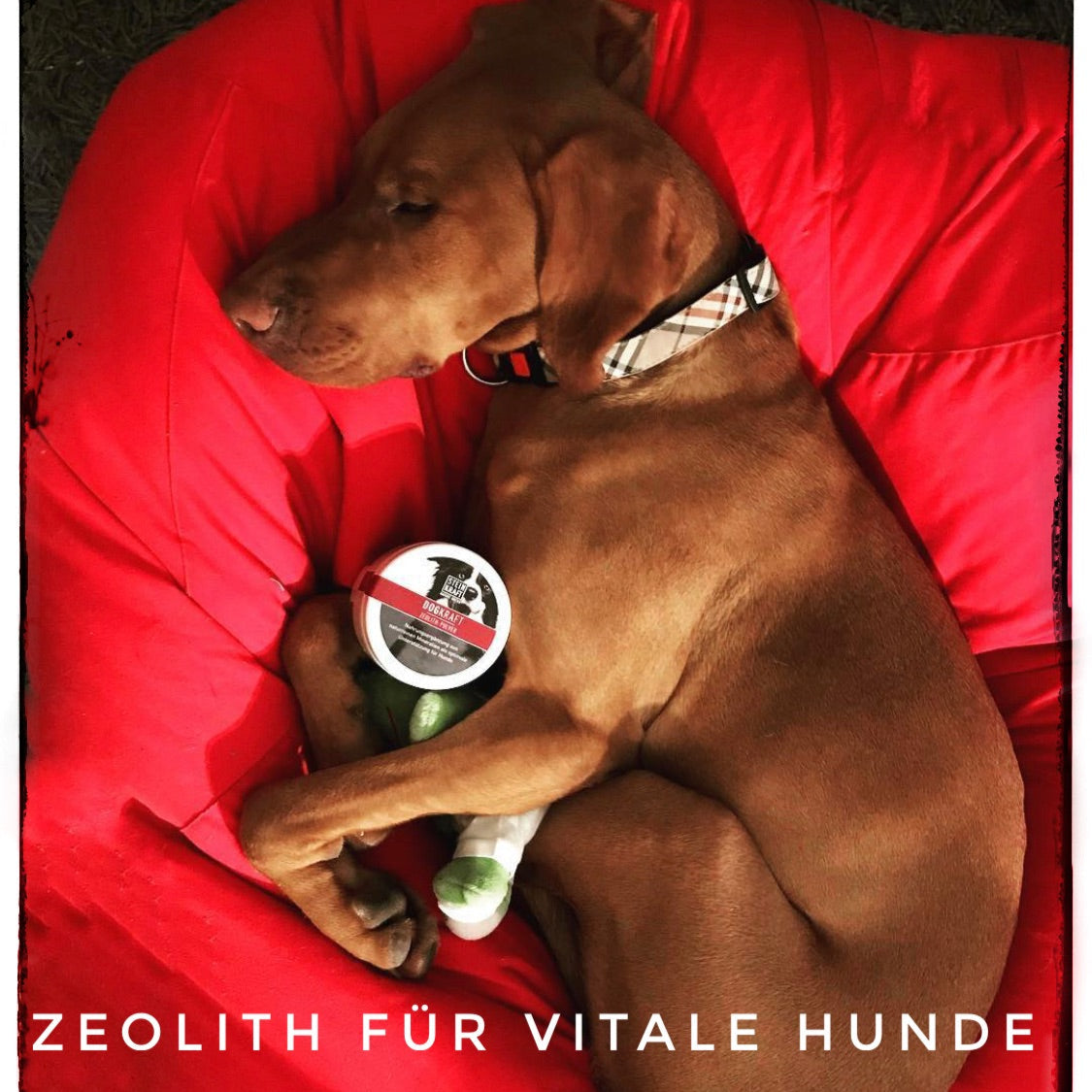
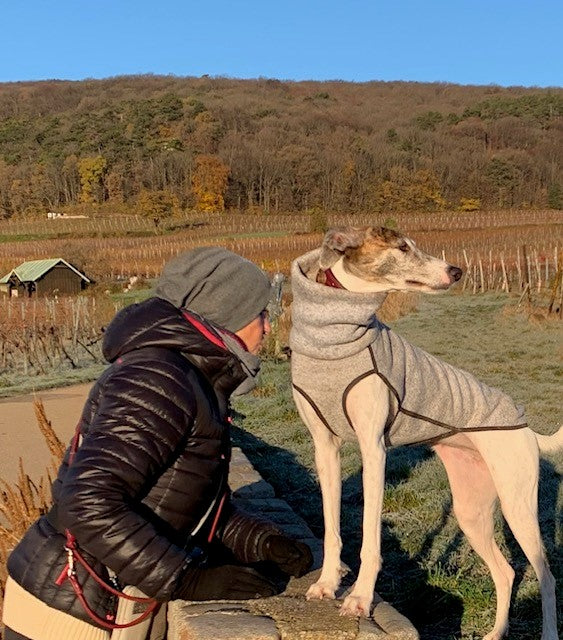






2 comments
Was wirklich schrecklich ist, wenn deine Hündin Durchfall hat, ist, dass du auch in der Nacht raus musst. Das war bei uns früher häufig der Fall. Wir wohnen im 2. Stock, und wenn Luna bedürftig dich anschaut, dann rennst du. Zeolith ins Futter dazu, darum würde ich jetzt weit fahren. Ist alles Vergangenheit, seitdem ich euer Zeolith dazu füttere. Täglich. Danke für die Beratung und die schnellen Pakete. L.
Was wirklich schrecklich ist, wenn deine Hündin Durchfall hat, ist, dass du auch in der Nacht raus musst. Das war bei uns früher häufig der Fall. Wir wohnen im 2. Stock, und wenn Luna bedürftig dich anschaut, dann rennst du. Zeolith ins Futter dazu, darum würde ich jetzt weit fahren. Ist alles Vergangenheit, seitdem ich euer Zeolith dazu füttere. Täglich. Danke für die Beratung und die schnellen Pakete. L.